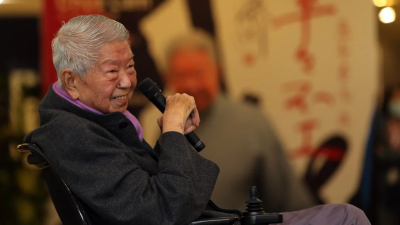The repeal of mandatory death and whipping sentences should mark a significant milestone in the country’s judicial reform, as the Malaysian society and laws ascend to a higher level of civility.
Minister in the prime minister’s department Wan Junaidi Tuanku Jaafar said the government was mulling to table the amendment bill on mandatory death and whipping sentences in the parliamentary session beginning October 3.
If everything goes as planned, mandatory death and whipping sentences will become history in Malaysia from next year, with judges given the discretion to hand down the sentences.
It is believed that the new ruling, if it becomes a reality, is poised to trigger another round of public controversies in this country.
The thing is, the amendment bill Wan Junaidi is going to table is not a complete abolition of death penalty, but to give the judges discretion to hand down death and whipping sentences.
While death penalty should still be retained here, the repeal of mandatory death and whipping sentences should mark a significant milestone in the country’s judicial reform, as the Malaysian society and laws ascend to a higher level of civility.
Wan Junaidi says whipping is very cruel, violent and inhuman. Now that the judges have been given the discretion, they should weigh the extent of damage inflicted upon the victims to determine whether the convicts should be whipped.
As of this June, there were as many as 1,342 condemned convicts in Malaysia’s prisons, over 70% or 900 of whom had been sentenced to death for drug trafficking. Wan Junaidi said the government would reconsider these people’s destinies, meaning the lives of these condemned convicts could still be spared.
In Malaysia, cases involving death penalty are the jurisdiction of the High Court. After a person is sentenced to death by the High Court, he can still appeal to the Court of Appeal or Federal Court. If the appeal is rejected, he can still seek royal pardon from the King or state governors.

As mentioned earlier, 70% of the 1,342 condemned convicts currently serving their jail sentences in Malaysian prisons have committed drug-related offenses (not necessarily drug trafficking, more often than not in possession of drugs in excess amounts).
Why most of the condemned convicts are drug traffickers or possessors of drugs? Very simple, because in this country, anyone found guilty of possessing at least 15 g of heroin will be sent to the gallows. Under Section 39B of the Dangerous Drugs Act 1952, anyone found in possession of at least 15 g of heroin or morphine, 1,000 g of prepared opium or raw opium, 200 g of cannabis, or 40 g of cocaine, will be sentenced to mandatory death.
We cannot deny that drugs are the root of social ills. During the first 11 months last year, almost 120,000 drug addicts (or 0.37% of the country’s population) were arrested by the police, and drug addiction among the police is something deserving our serious attention. During the August 2019 Op Blue Devil, over a hundred policemen among 3,438 (2.9%) undergoing urine tests tested positive for drugs. The percentage of drug addicts among the police was 7.8 times higher than the general population!
Additionally, in the amendment bill on mandatory death this time, under the Firearms (Increased Penalties) Act, a person in possession of firearms, ammunition or explosive in security area – Section 57(1) Internal Security Act 1960 – is punishable with mandatory death.
This is another point of contention because a person carrying a bag with firearms (as in drugs) on behalf of a friend will be sentenced to “mandatory death” which is very unfair to the innocent person. To avoid such injustices, it is indeed necessary to amend the existing laws.
True enough, under the Penal Code, whoever commits murder (Section 302), detains and threatens to kill or injure a hostage (Section 374A) or causes the death of a victim while committing or attempting to commit rape (Section 376(4)), will all be punished with death. If there are strong evidences against the perpetrators, we should support “mandatory death” for these people because they will potentially cause irreparable damage to our society if they are set free.
ADVERTISEMENT
ADVERTISEMENT


































